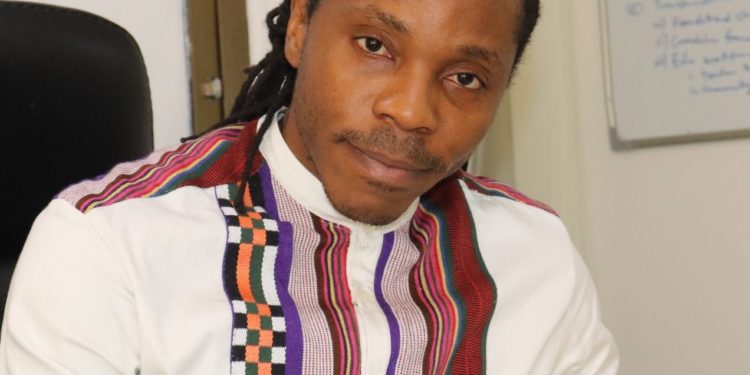The Sierra Leonean society must come to terms with the reality that teenager girls are engaging in sex and take collective responsibility of the consequent high rate of teenage pregnancies, Basic Education Minister Dr David Sengeh says.
He laments that teenage pregnancy is not just affecting the girl child education but it’s also claiming a lot of young lives.
Dr Sengeh made the assertion in a webinar he hosted via zoom to discuss issues affecting the education sector and the policies and actions the Bio Administration has been putting in place to address them. His talk on Wednesday night touched on teachers’ welfare, exams malpractice, the government’s school feeding programme and the thorny issue of teenage pregnancy and its effects on girl child education.
“Everyone knows that teenagers are having sex. If they do not have sex they won’t be dying, everyone knows that. So society needs to take responsibility,” says Mr Sengeh to an audience that included participants from Sierra Leone and abroad.
In March 2020 the Sierra Leone government lifted a 10-year ban on girls with visible pregnancies from attending mainstream schools. The Ernest Bai Koroma administration policy imposed in 2010 was enforced in 2015 at the height of the 2013-2016 West African Ebola epidemic, when the rate of teen pregnancies increased dramatically as a consequence of restrictions imposed to curb the spread of the virus.
The decision sharply divided the Sierra Leonean public, making it a politically charged issue.
The ban was eventually lifted in the spirit of the ‘New Direction’ administration’s Radical Inclusion Policy, which Dr Sengeh says was designed to ensure that everybody gets access to education regardless of their status in society.
The Radical Inclusion Policy encompasses four categories of people, considered as historically marginalised groups: pregnant girls and parent learners; children with disabilities; children from rural and underserved areas; and children from low-income families.
The aspect of unhindered access to education by pregnant girls is the most contentious, as indicated by the massive public support the ban received.
A group of human rights organizations had to challenge it at the regional community court of the Economic Community of West African States (ECOWAS), arguing against its discriminatory effect on girls.
The court sitting in the Nigerian capital, Abuja, subsequently ruled against the Sierra Leone government, describing the policy as discriminatory and ordering it to abolish it.
The judges also ordered the government to implement a number of measures geared towards preventing teenage pregnancy and to protect victims.
Dr Sengeh says the government lifted the ban because it’s in line with its ideals, noting that President Julius Maada Bio had been personally against the ban. The Education Minister adds that the decision was also informed by data at the government’s disposal which showed that the effect of the ban was counterproductive and that it amounted to punishing the victims of society’s exploitation.
“Half of our women who are dying from maternal death were raped, by law. You cannot justifiably say you are moral when we continue to punish them,” says Sengeh.
“We cannot develop without gender equality,” he adds.
Not only are cases of teenage pregnancy persistent, the nature of the stories are also telling, like girls being preyed on by their teachers. There is the story of a teacher who impregnated a 17-year girl and later married her at her 18th birthday, according to the Education Minister.
Besides the lifting of the ban, the ECOWAS Court also recommended for the Sierra Leone government to put in place measures to prevent teenage pregnancies and protect the victims against discrimination.
How much of these recommendations have the government implemented?
While admitting that there were many challenges still on the ground, Sengeh says his team is working on policies geared towards ameliorating the situation, including the School health policy which is soon to be presented to cabinet for approval, as well as the Comprehensive Sexuality Education syllabus to be included in the basic education curriculum.
The webinar on public education had people tune in from across Africa, including Liberia, Mali and South Sudan, as well as from the United Kingdom, the US and Canada.






















